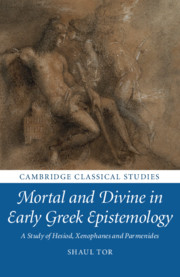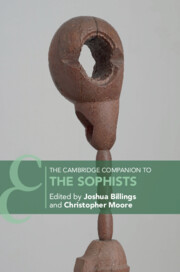Mortal and Divine in Early Greek Epistemology
This book demonstrates that we need not choose between seeing so-called Presocratic thinkers as rational philosophers or as religious sages. In particular, it rethinks fundamentally the emergence of systematic epistemology and reflection on speculative inquiry in Hesiod, Xenophanes and Parmenides. Shaul Tor argues that different forms of reasoning, and different models of divine disclosure, play equally integral, harmonious and mutually illuminating roles in early Greek epistemology. Throughout, the book relates these thinkers to their religious, literary and historical surroundings. It is thus also, and inseparably, a study of poetic inspiration, divination, mystery initiation, metempsychosis and other early Greek attitudes to the relations and interactions between mortal and divine. The engagements of early philosophers with such religious attitudes present us with complex combinations of criticisms and creative appropriations. Indeed, the early milestones of philosophical epistemology studied here themselves reflect an essentially theological enterprise and, as such, one aspect of Greek religion.
- Develops new interpretative approaches which show how we can see the early Greek philosophers as being both 'religious' and 'philosophical'
- Rethinks the relations between early Greek philosophy and religion
- Adopts an interdisciplinary approach, integrating and pursuing simultaneously logical and philological analysis, cultural and religious history, and literary criticism
Product details
July 2021Paperback
9781009069847
420 pages
216 × 139 × 23 mm
0.548kg
Available
Table of Contents
- Introduction
- 1. Rationality and irrationality, philosophy and religion
- 2. Hesiodic epistemology
- 3. Xenophanes on divine disclosure and mortal inquiry
- Introduction to the chapters on Parmenides
- 4. Why did Parmenides write Doxa?
- 5. How could Parmenides have written Alêtheia?
- 6. Retrospect and prospect
- Appendix: The trajectory of the kouros' journey and eschatological topography in Parmenides: some inconclusive remarks.




